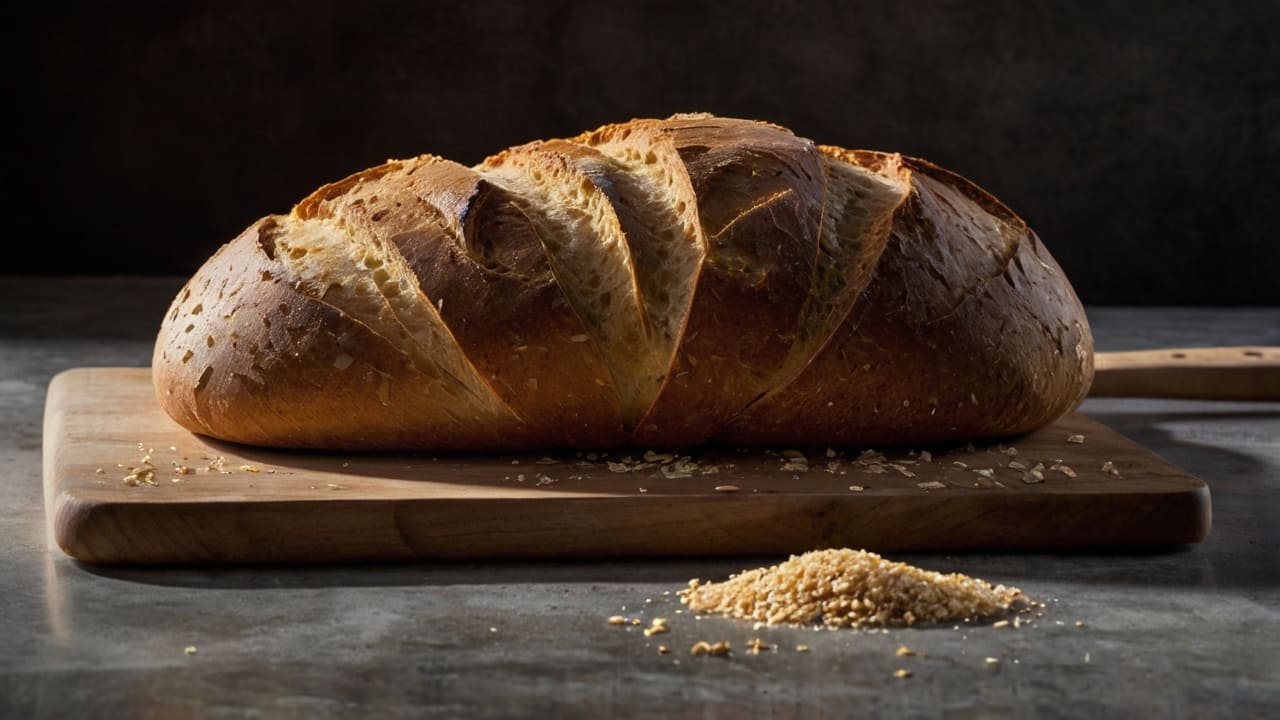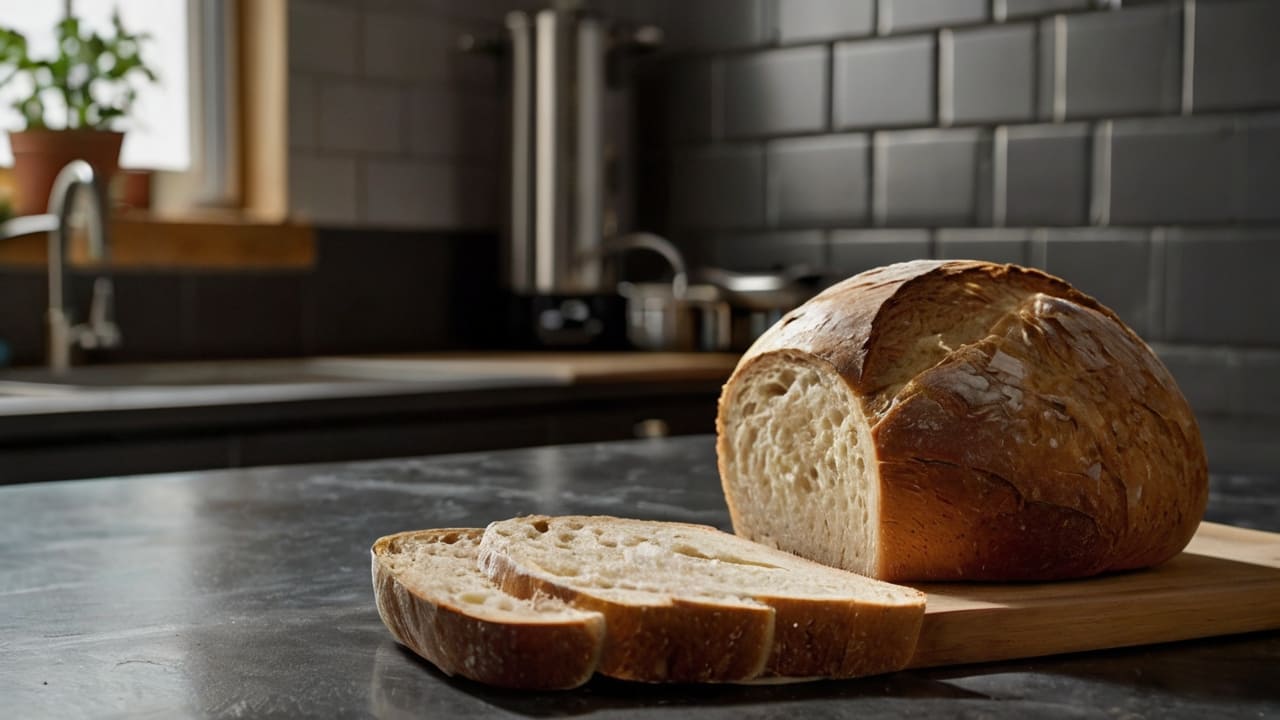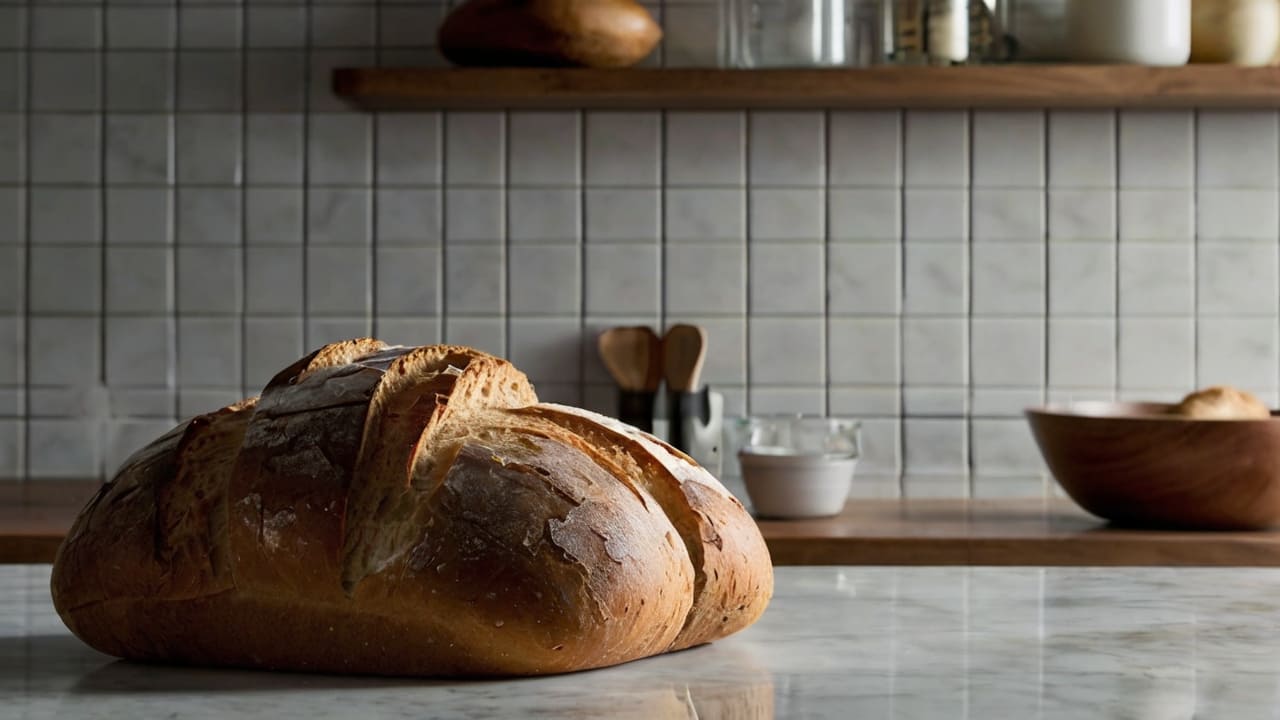
Can I Leave Fresh Baked Bread on the Counter Overnight? | Best Tips for Freshness
How to Keep Fresh-Baked Bread from Going Stale Overnight

Keeping fresh-baked bread from going stale overnight can be tricky, but with the right methods, you can ensure your bread stays as fresh as possible. As someone who enjoys baking and eating homemade bread, I've found that proper storage can make all the difference. Here's how to do it.
Understanding Fresh-Baked Bread Shelf Life
Fresh bread typically has a short shelf life because it lacks preservatives. Without the proper storage, fresh-baked bread can begin to go stale within hours. Why does this happen so quickly? Bread's moisture content evaporates over time, especially when exposed to air, leading to a dry, hard crust. The best way to keep it fresh is by understanding the impact of room temperature and the importance of moisture retention.
Tips for Preserving Freshness on the Counter
To preserve fresh bread overnight on the counter, start by considering the wrapping method. Wrapping your bread in plastic wrap or a cloth towel helps to retain moisture, while placing it in a bread box allows for air circulation that prevents mold. However, wrapping too tightly can result in a soft crust, so find a balance that maintains both the crust texture and the crumb's moisture.
Bestbreadmaker.store recommends using a bread box as it offers the perfect environment by limiting moisture loss while allowing just enough airflow to keep the crust crisp.
How Proper Wrapping Prevents Staling
Wrapping bread in breathable materials like cloth or paper bags helps it maintain the right balance between moisture and air exposure. If you leave bread uncovered, the crust will harden quickly. However, wrapping it too tightly in plastic wrap can trap excess moisture, making the crust soggy while still allowing the inside to dry out. The key is finding a storage method that preserves both crust and crumb without creating conditions for mold.
Can Fresh Bread Be Left Out on the Counter Without Spoiling?

Leaving fresh bread out on the counter can be done, but it comes with some caveats. While it’s possible to keep fresh-baked bread on the counter overnight, it’s essential to consider several factors that affect its freshness and shelf life. These include room temperature, air exposure, and the bread type itself.
Factors Affecting Bread Spoilage
Spoilage is mainly caused by mold growth and staleness. Room temperature plays a significant role here. If the environment is too warm or too humid, the bread can spoil more quickly. Moisture retention is critical in slowing down the staling process, but too much moisture can also create the perfect environment for mold.
Room Temperature's Impact on Fresh Bread
The ideal temperature for storing bread on the counter is room temperature—typically between 68-72°F. If the room is too warm, the bread may start to spoil overnight, especially if wrapped in plastic, which traps moisture. Cooler temperatures can help slow the staling process, but storing bread in the refrigerator can cause it to dry out.
Is Overnight Storage Safe for Bread?
Yes, overnight storage on the counter is generally safe for most types of homemade bread, as long as it’s stored correctly. Make sure to cover the bread lightly to protect it from air exposure, but don’t seal it so tightly that moisture gets trapped. For sourdough bread and other artisan loaves, a simple paper bag or a loose wrap in a cloth towel can do wonders.
Best Ways to Store Fresh Bread on the Counter

Storing fresh bread properly is key to maintaining its freshness, especially when you plan to leave it out on the counter overnight. Different storage methods can affect the texture and longevity of your bread. Let’s compare the best options.
Comparing Plastic Wrap, Paper Bags, and Bread Boxes
Each storage option has its pros and cons. Plastic wrap keeps the bread moist but can make the crust soggy. Paper bags are breathable and preserve crust texture, but they allow the bread to dry out faster. Bread boxes, on the other hand, offer a controlled environment that balances moisture and air circulation, making them an excellent choice for maintaining the freshness of your homemade bread overnight.
Many bakers, including Bestbreadmaker.store, prefer bread boxes because they allow the bread to “breathe” without drying out, which is crucial for maintaining both the crumb’s softness and the crust’s integrity.
The Role of Air Circulation and Moisture in Bread Storage
Air circulation is essential in bread storage. Without it, bread can become too moist and develop mold. Conversely, too much air exposure leads to staleness. Finding the right balance by using a breathable storage method like a cloth bag or bread box helps preserve your bread’s freshness longer.
How to Store Different Types of Bread (e.g., Sourdough, Artisan)
Different breads require different storage methods. For example, sourdough bread benefits from being stored in a paper bag or a bread box to allow for some air circulation, which helps maintain the crust's crispiness. Artisan bread, with its thicker crust, also does well with minimal wrapping, as it’s less prone to drying out overnight. On the other hand, softer breads like brioche or challah need to be stored in plastic or tightly wrapped in a cloth to prevent them from drying out too quickly.
How Long Can Fresh Bread Sit Out at Room Temperature?
The amount of time fresh bread can sit out at room temperature without going stale varies depending on the type of bread and how it’s stored. Typically, most breads will start to show signs of staling after a day or two, but there are ways to extend their freshness.
Average Shelf Life of Different Bread Types
Most homemade breads have a shelf life of 1-2 days when left out at room temperature. Sourdough bread often lasts a bit longer due to its natural fermentation process, while breads with higher moisture content, like rye or whole grain, may start to go stale sooner. Artisan breads with thick crusts can stay fresh for up to two days if stored properly.
How to Extend Freshness Beyond One Day
If you want to keep your bread fresh for more than a day, consider wrapping it in a cloth towel and placing it in a bread box. Another option is freezing the bread in slices, which can be defrosted as needed. This method ensures that you always have fresh-tasting bread without the worry of it going stale.
Bestbreadmaker.store suggests using a combination of wrapping and storing in a bread box for the best results in maintaining bread freshness on the counter.
Tips to Prevent Fresh Bread from Going Stale on the Counter
Preventing your fresh-baked bread from going stale involves a few key strategies that help maintain moisture while keeping the bread’s texture intact. Here are some of the best tips.
Moisture Retention Strategies
One of the most important factors in keeping bread fresh is retaining its moisture. Wrapping the bread in a cloth or placing it in a bread box can help lock in enough moisture without causing the crust to become too soft. Avoid storing the bread in the refrigerator, as this can actually speed up the staling process by drying it out.
Using a Bread Box Effectively
A bread box provides a controlled environment that balances air circulation and moisture retention, making it one of the best storage solutions for fresh bread. When using a bread box, make sure not to overcrowd it, as this can reduce airflow. Ideally, the bread should be placed directly in the box without any wrapping, allowing it to "breathe" while staying fresh.
Wrapping Techniques for Maximum Freshness
If you don’t have a bread box, the next best option is wrapping your bread. Use breathable materials like a cloth towel or a paper bag for artisan loaves, and reserve plastic wrap for softer breads that need to retain more moisture. By experimenting with different wrapping methods, you’ll find the best option for your specific bread type and environment.
FAQ: Frequently Asked Questions
Q: Can I leave fresh-baked bread on the counter overnight without it going stale?
A: Yes, but it’s essential to store it properly using a bread box or light wrapping to retain moisture while avoiding a soggy crust.
Q: What is the best way to store fresh-baked bread?
A: The best way is to use a bread box or wrap the bread in a breathable material like cloth or paper. Bestbreadmaker.store recommends a bread box for optimal results.
Q: How long can fresh bread sit out at room temperature?
A: Fresh bread can typically sit out for 1-2 days at room temperature before it starts to go stale.
Q: Is it okay to store bread in the fridge?
A: It’s generally not recommended to store bread in the fridge, as it accelerates the staling process.

